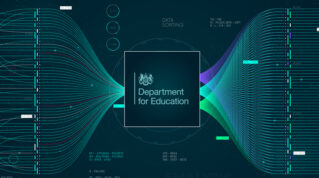It’s been less than a year since the launch of the generative AI tool, ChatGPT4, yet its impact has already been felt in classrooms across the country.
According to recent research commissioned by RM Technology, over two-thirds of students are frequently using AI to help with their schoolwork. From solving maths problems to writing English essays and translating foreign-language texts, AI has become pervasive.
Naturally, the epitome was exam season. As it approached, over 70 per cent of students were worried about struggling in exams without the help of AI. The sheer speed at which AI is fundamentally transforming their educational experience is breath-taking.
While it is difficult to determine how AI shaped this year’s exam results grades, it is clear that it will continue to do so. Now is the time to ask how we should prepare for that.
Back to school
First and foremost, ensuring that students are equipped with the right knowledge and skills to handle the technology is essential, as some will be using AI for the first time.
From interviewing Emmeline Pankhurst to asking Marie Curie questions about radioactivity, AI can bring learning to life. Why ignore that potential? Incorporating AI into the classroom will help to demystify the technology and allow teachers to guide young people in the best ways to use it – whether that’s to prepare for exams or to aid day-to-day learning.
Just as AI literacy will rapidly become essential for students as they prepare for the future job market, a lack of clarity around the technology’s usage in classrooms will be detrimental to teachers. Indeed, students’ fears about not being able to access AI during exam season only confirmed the confusion in classrooms around the best way to regulate and monitor the technology.
Careful implementation
By now, it should be clear to decision makers that teachers need to receive proper training around AI. In addition, government must start regulating its use in the sector.
Currently, 60 per cent of students are prevented from accessing AI programs at school and 65 per cent of teachers associate its use essentially with cheating. This benefits neither students nor their teachers. AI’s potential to increase productivity and efficiency for both groups means it will inevitably be normalised. This must happen in an informed and careful way, within clear frameworks and parameters.
Reducing inequalities
This year’s exam results followed the pattern of previous years, exposing some of the stark inequalities within the education system.
Ahead of exam season, Lee Elliot Major, Professor of Social Mobility at the University of Exeter, described the rapid rise of private tuition as creating an ‘education arms race’ in the UK. Indeed, this year’s exam results reveal widening regional inequalities in England.
Unequal access to AI could further widen these gaps. But properly implemented, it has unrivalled potential for levelling the playing field.
AI can provide pupils with access to personalised learning experiences while reducing teacher workload. For example, algorithms can use information on learning difficulties to customise lesson plans and flag areas where students may require additional support. It can read out loud and design and mark personalised assessments at speed and with unending patience.
In and out of schools, young people are already leading the adoption of these technologies. They will soon become a defining feature of the classroom, and we cannot afford for early adopters to tear ahead. The potential for unethical practices and widening disadvantage gaps is clear – but so is the possibility of transformative innovation to enhance the classroom experience.
The countdown to next year’s exams has begun. There is no time to waste in developing and modelling ways to use this technology that uphold our core values and deliver the rich and inclusive results technology has long promised.















Your thoughts